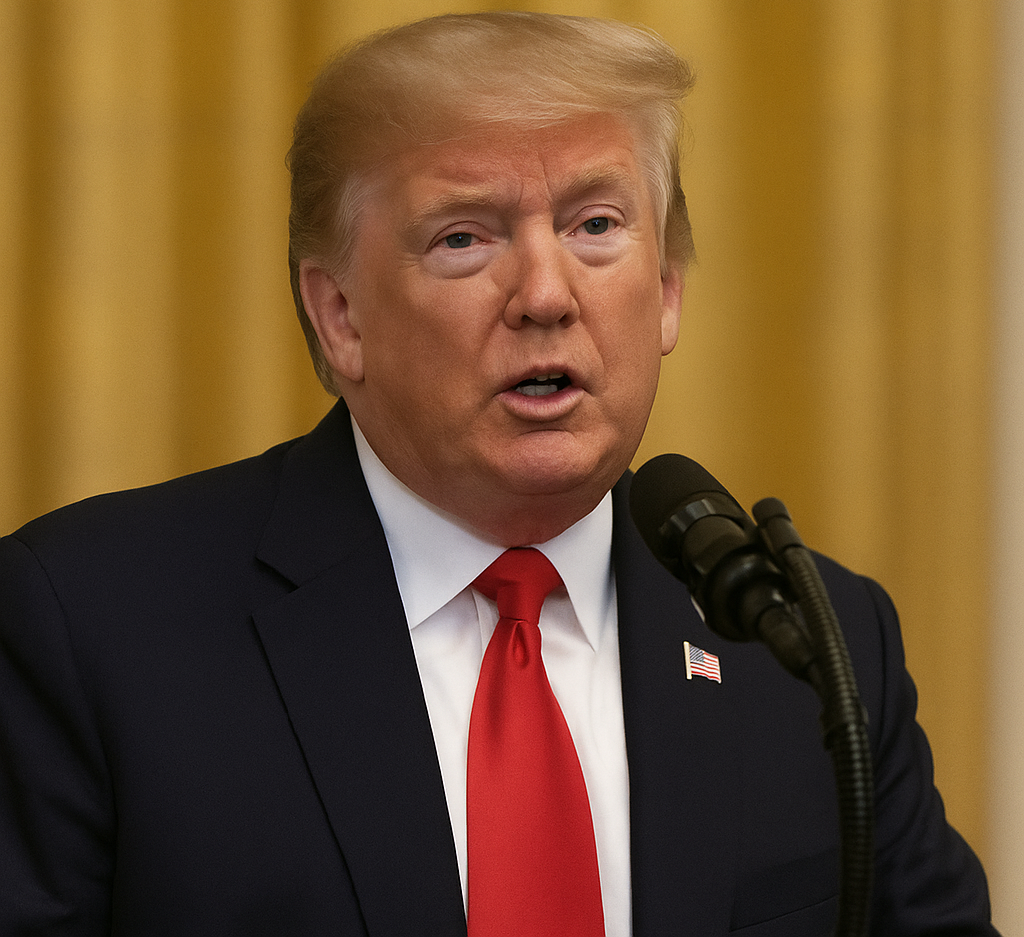Donald Trump has stirred fresh controversy by asserting that five fighter jets were downed during the intense India-Pakistan military standoff in May, while crediting his administration with halting what he described as a near-war between the nuclear-armed neighbors. The claim, made during a dinner with Republican lawmakers at the White House, lacks corroboration from either side and has been firmly challenged by India.
“We stopped a lot of wars. And these were serious—India and Pakistan—that was going on. Planes were being shot out of the sky. I think five jets were shot down, actually,” Trump said. “These are two serious nuclear countries, and they were hitting each other. You know, it seems like a new form of warfare.”
The comments refer to the escalation that followed India’s Operation Sindoor on May 7, launched in retaliation for a deadly terrorist attack in Pahalgam. The military operation targeted terror infrastructure in Pakistan-administered territories and triggered four days of retaliatory and counter-retaliatory drone and missile exchanges between the two militaries. However, no official reports from New Delhi or Islamabad have acknowledged the loss of five aircraft, raising questions about the accuracy of Trump’s statement.
This is not the first time Trump has claimed a key role in mediating peace between India and Pakistan. On May 10, he posted on social media announcing a ceasefire agreement after purported U.S.-led diplomatic interventions. India immediately rejected the notion, clarifying that the cessation of hostilities was the result of a direct, pre-scheduled phone call between the Directors General of Military Operations (DGMOs) of both nations.
“The decision to halt military operations was taken mutually through an established channel between the DGMOs,” an Indian Ministry of Defence official had stated at the time. “No third-party intervention was involved.”
Trump’s latest remarks revive his earlier assertions that trade negotiations were used as leverage to broker peace. “We got it solved through trade,” he said. “We said, ‘You guys want to make a trade deal. We’re not making a trade deal if you’re going to be throwing around weapons—and maybe nuclear weapons.’”
India, however, has consistently maintained that issues with Pakistan must be addressed bilaterally and has dismissed external mediation efforts, including those led by the United States. New Delhi’s long-standing diplomatic stance rejects third-party involvement in its relations with Islamabad, especially on sensitive security matters.
Strategic experts in India have expressed skepticism over Trump’s version of events. “Trump’s remarks appear to be an exaggeration and a misreading of the situation,” said Lt. Gen. (Retd) Syed Ata Hasnain. “There is no evidence that five jets were shot down, and the diplomatic process was entirely Indo-Pak managed.”
Trump also drew comparisons between the South Asian standoff and the recent flare-up between Israel and Iran, where a 12-day exchange of drones and missiles ended with a U.S.-brokered ceasefire. In the same breath, he made another unsubstantiated claim, stating, “We knocked out their [Iran’s] nuclear capability—totally knocked it out,” a declaration that contradicts public intelligence assessments.
While Trump’s supporters have praised his assertiveness on foreign policy, critics argue that such remarks, particularly when unverified, risk undermining international diplomatic efforts and the credibility of U.S. foreign relations.
As the world watches ongoing geopolitical tensions from Eastern Europe to East Asia, Trump’s comments once again highlight the fine line between diplomacy and bravado—especially when it comes to regions as volatile as South Asia.
India and Pakistan, both nuclear powers with a history of armed conflicts, remain locked in a fragile détente. While the ceasefire of May 10 still holds, inflammatory rhetoric—whether domestic or international—continues to pose a risk to regional stability.








